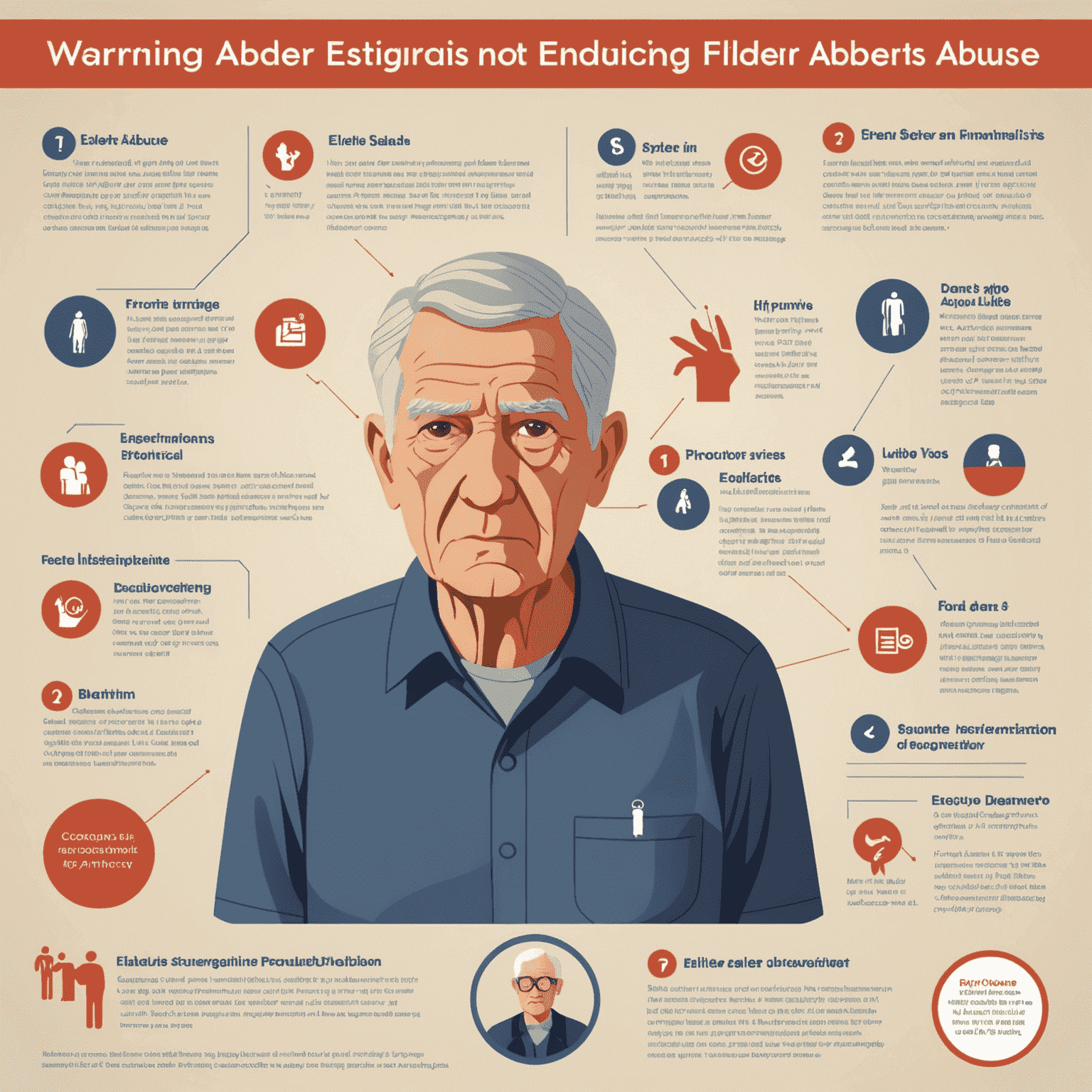Elder Mistreatment: Recognition and Prevention Strategies

Elder mistreatment is a serious and often overlooked issue that affects millions of older adults worldwide. As legal professionals specializing in elder law, it's crucial to understand the various forms of elder mistreatment, recognize warning signs, and implement effective prevention strategies. This article aims to shed light on this important topic and provide valuable information for seniors, caregivers, and concerned family members.
Forms of Elder Mistreatment
Elder mistreatment can manifest in several ways:
- Physical Mistreatment: Inflicting physical pain or injury on an elderly person.
- Emotional Mistreatment: Causing mental anguish through verbal or nonverbal acts.
- Financial Exploitation: Unauthorized use of an elderly person's funds or property.
- Neglect: Failure to provide necessary care, food, or shelter.
- Sexual Assault: Non-consensual sexual contact of any kind.
- Abandonment: Desertion of an elderly person by someone responsible for their care.
Warning Signs of Elder Mistreatment
Recognizing the signs of elder mistreatment is crucial for early intervention. Some common warning signs include:
- Unexplained bruises, burns, or injuries
- Sudden changes in behavior or emotional state
- Unusual financial transactions or missing belongings
- Poor hygiene or unsanitary living conditions
- Isolation from friends and family
- Bedsores, unattended medical needs, or malnutrition

Prevention Strategies
Preventing elder mistreatment requires a multi-faceted approach involving individuals, families, and communities. Here are some effective strategies:
- Education and Awareness: Educate seniors, caregivers, and the public about elder mistreatment and its signs.
- Regular Check-ins: Maintain frequent contact with elderly loved ones, especially those in care facilities.
- Financial Safeguards: Implement measures to protect seniors' assets, such as monitoring accounts and setting up power of attorney.
- Support for Caregivers: Provide resources and respite care for caregivers to prevent burnout and frustration.
- Community Involvement: Encourage community programs that reduce isolation and promote social engagement for seniors.
- Legal Protections: Advocate for and utilize legal measures designed to protect vulnerable adults.
Reporting Elder Mistreatment
If you suspect elder mistreatment, it's crucial to report it immediately. Here's how:
- Contact local Adult Protective Services or law enforcement.
- If the person is in immediate danger, call 911.
- Report suspicions to the National Elder Mistreatment Hotline at 1-800-222-8000.
- Document any evidence or observations to support your report.
Remember, reporting is private, and you don't need absolute proof to make a report. It's better to err on the side of caution when it comes to protecting vulnerable seniors.
Conclusion
Elder mistreatment is a complex issue that requires vigilance, compassion, and action from all of us. By understanding the forms of mistreatment, recognizing warning signs, and implementing prevention strategies, we can work together to protect our elderly population and ensure they live with dignity and respect. At Urban Echoes Shop, we are committed to providing legal support and resources to combat elder mistreatment and protect the rights of seniors. If you have concerns or need legal assistance related to elder mistreatment, don't hesitate to reach out to our experienced team.